China explosions: The questions people are asking about the Tianjin blasts
- Published
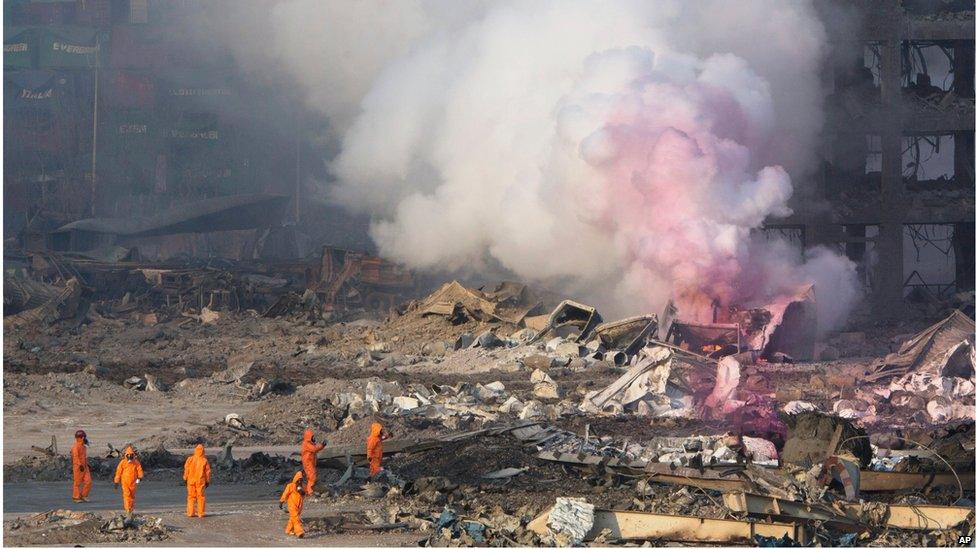
Many in Tianjin have expressed worry about pollution caused by the explosion
In the aftermath of the massive blasts that took place in Tianjin on 12 August, many concerns have been raised by Chinese citizens.
Many have demanded answers on how the explosions, which took place at a warehouse containing hazardous materials, could have happened and about the environmental and public health fallout.
Even state-controlled media such as the Global Times noted, external that the blasts "raised questions over loopholes" about safety precautions and city planning.
These are the main concerns.

Was the warehouse too close to residential areas?
Residents have been staging protests outside the hotel where officials have been giving press conferences, demanding compensation.
They have pointed out some homes were allowed to be built just a few hundreds of metres from the warehouse, owned by Ruihai International Logistics.
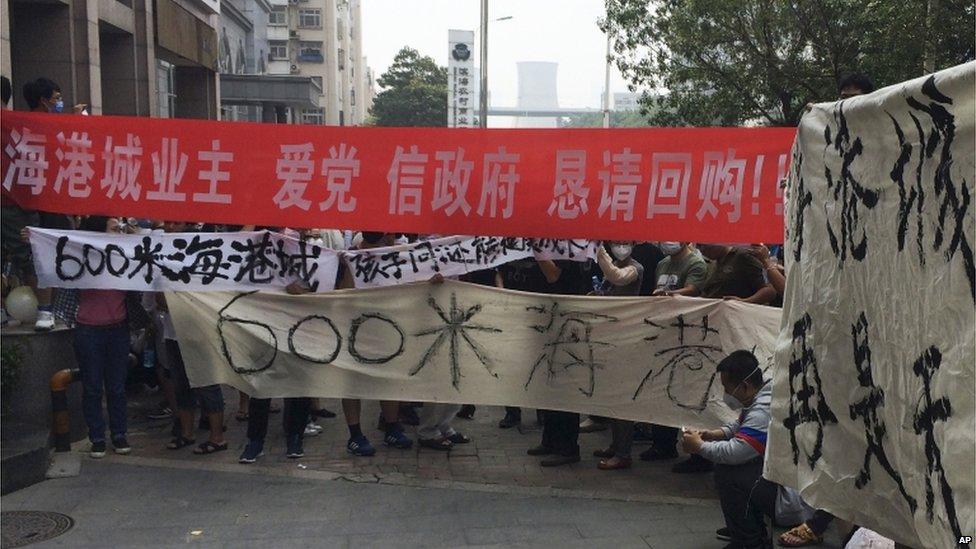
Residents on Monday held up protest banners outside the Mayfair Hotel in Tianjin
Many censored posts on social media took issue with city planning officials.
"Who allowed a warehouse with dangerous goods be built just a few hundred metres from a residential area? Who allowed so many dangerous 'toys' to be clustered together? And which department failed to detect such a dangerous situation?" read one post by user Liu Tong.
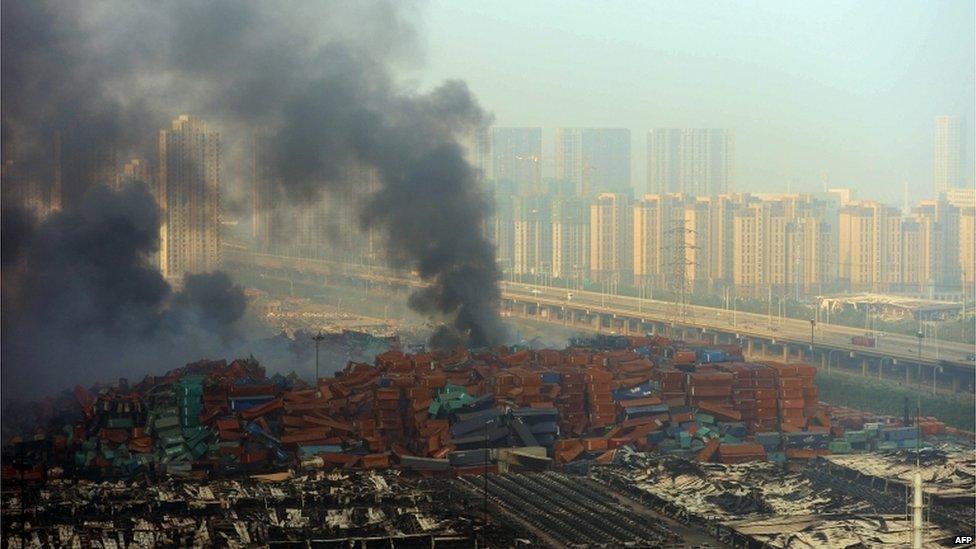
At least three major residential communities were situated within 1km of the warehouse
At officials' first press conference held on Thursday, the day after the blasts, a journalist asked officials: "According to environmental regulations, what should be the distance between a residential area and [an area with] dangerous goods?"
Tianjin environment chief Wen Wurui appeared to be at a loss for words, and none of the other officials answered. CCTV then cut the broadcast., external
The incident sparked heavy criticism online. Weibo user Parisian Taotaijun said: "When will the citizens know the truth, all the answers we are getting are heavily scripted, it's so fake."
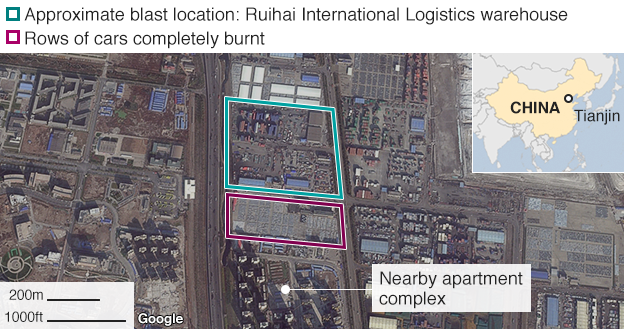
Global Times said the minimum distance between businesses with dangerous chemicals and public buildings and transport networks is meant to be 1km, but data showed there were at least three major residential communities within that radius of the warehouse.
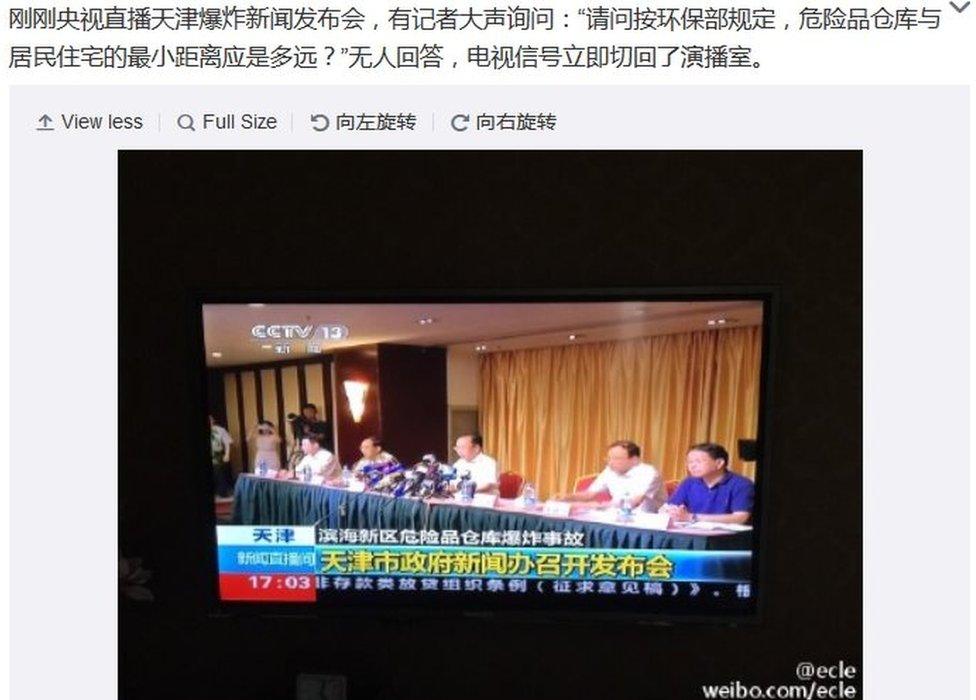
Weibo user Ecle noted that the transmission of the press conference was cut after officials could not answer queries
Could chemicals have contaminated water?
Reports that 700 tonnes of sodium cyanide were stored at the warehouse that exploded sparked concerns that it could contaminate the city's drinking water.
"If this issue isn't addressed soon, it could be even worse than the blast itself," said Weibo user Tao Weng WT, in a censored post.
Xinhua and Global Times on Saturday reported that cyanide content in waste water in the affected area was more than double the normal limit.
On Monday, officials said that three waste water discharge monitoring stations within the evacuated area saw excessive levels of cyanide, with one station recording a level 27.4 times the normal limit, reported People's Daily., external
But authorities have stressed that the area is sealed off and hazardous material was contained at the site.
Is there a risk of airborne pollution?
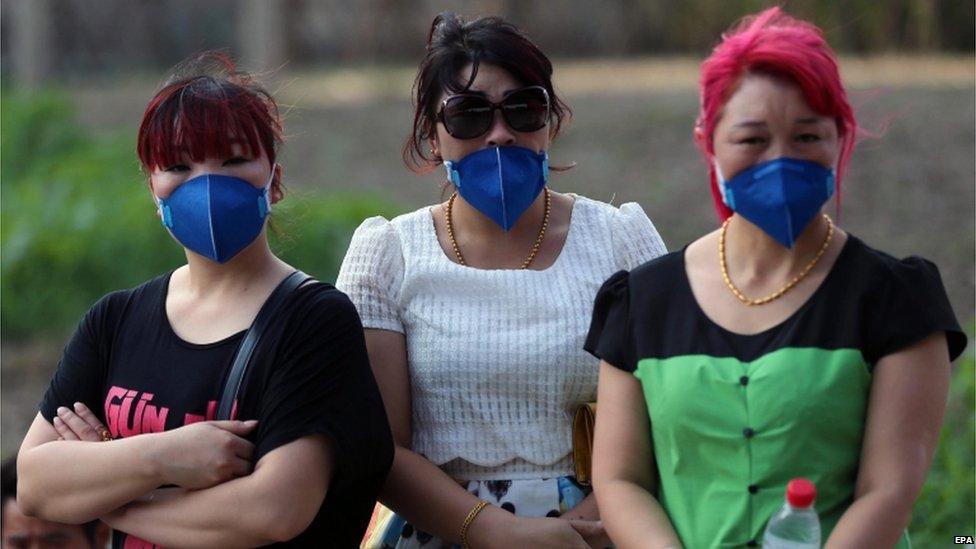
Worried residents have been wearing face masks to guard against air pollution
One chief concern is whether pollutants released from the blast would drift over the rest of the city and other places such as the capital Beijing, just 100km (62 miles) from Tianjin.
Officials visibly struggled to answer such queries from reporters at the first few press conferences.
Authorities said at first that the wind was blowing pollutants away into the sea, but an apparent change in wind direction on Saturday prompted an evacuation of an area 3km in radius around the site.
On Monday authorities said there was a low risk of contamination beyond this area, and added that there was only one air quality monitoring station had detected a minimally higher level of hydrogen cyanide in the air. The highly poisonous gas is released when sodium cyanide is dissolved or burned.
Were firefighters well equipped?
The warehouse contained chemicals and flammable gases, but the authorities were unclear about what exactly was there at the time of the blast. Some reports said all documentation had been destroyed in the fire.
Nevertheless questions have been raised about whether firefighters were equipped well enough and whether the materials they used to battle the flames were appropriate - as certain chemicals' exposure to water could cause explosions.
At least 21 firefighters died in the disaster. Lei Jinde, the deputy propaganda chief of China's fire department, defended the actions of firefighters, Reuters reported, saying they did not know the location of the chemicals.